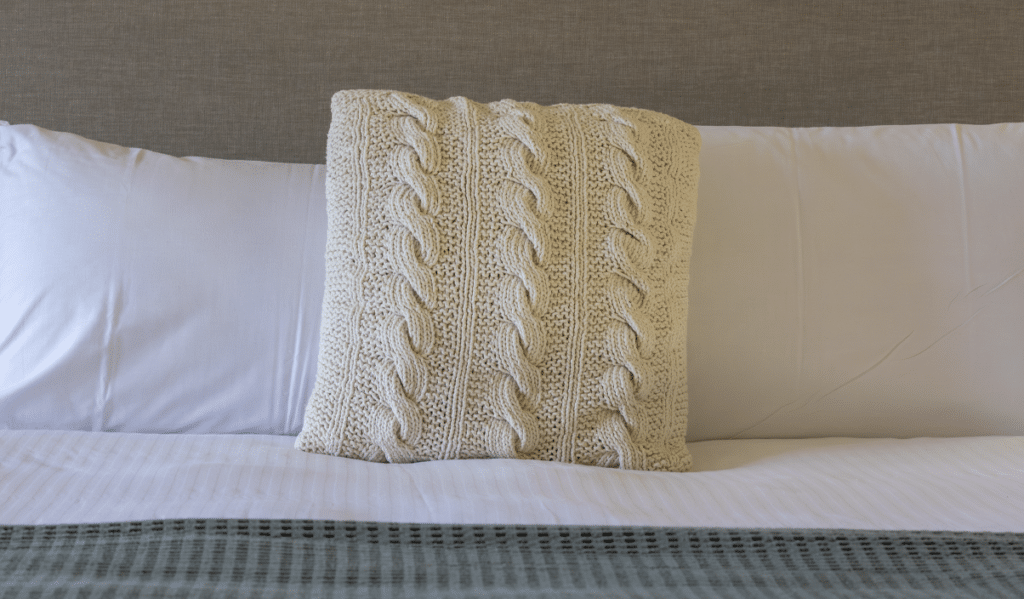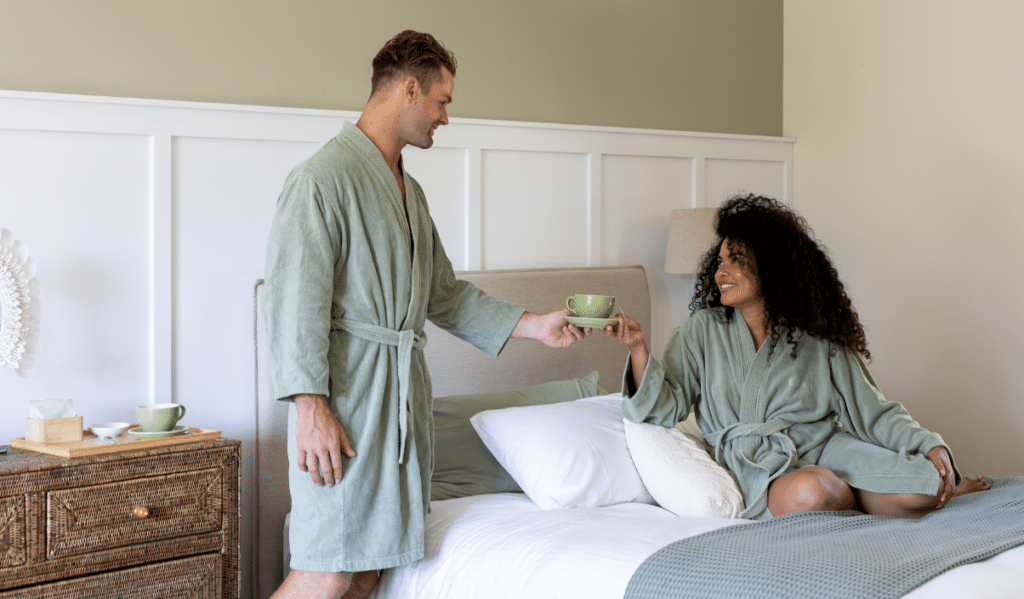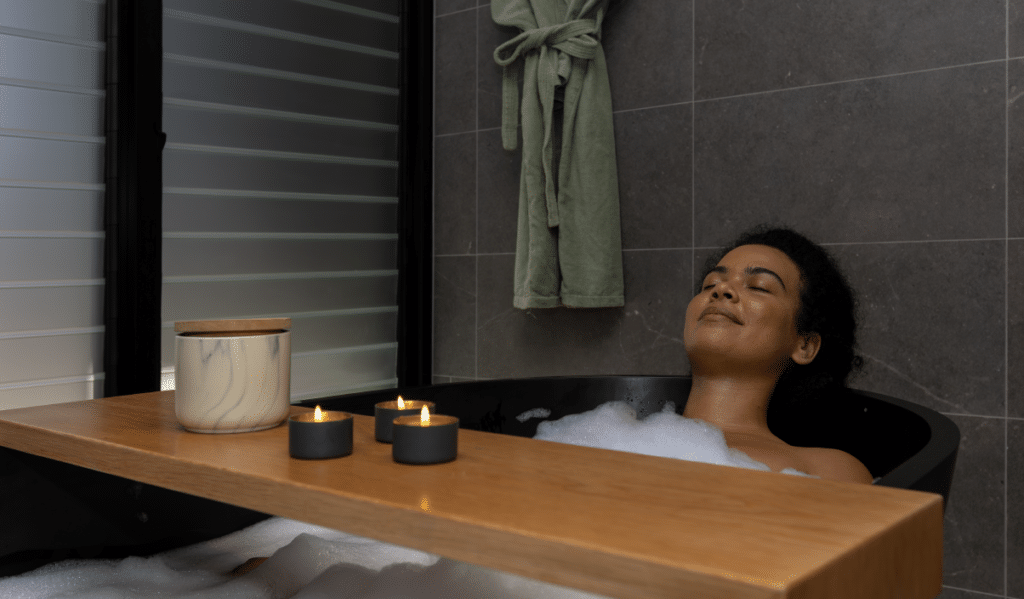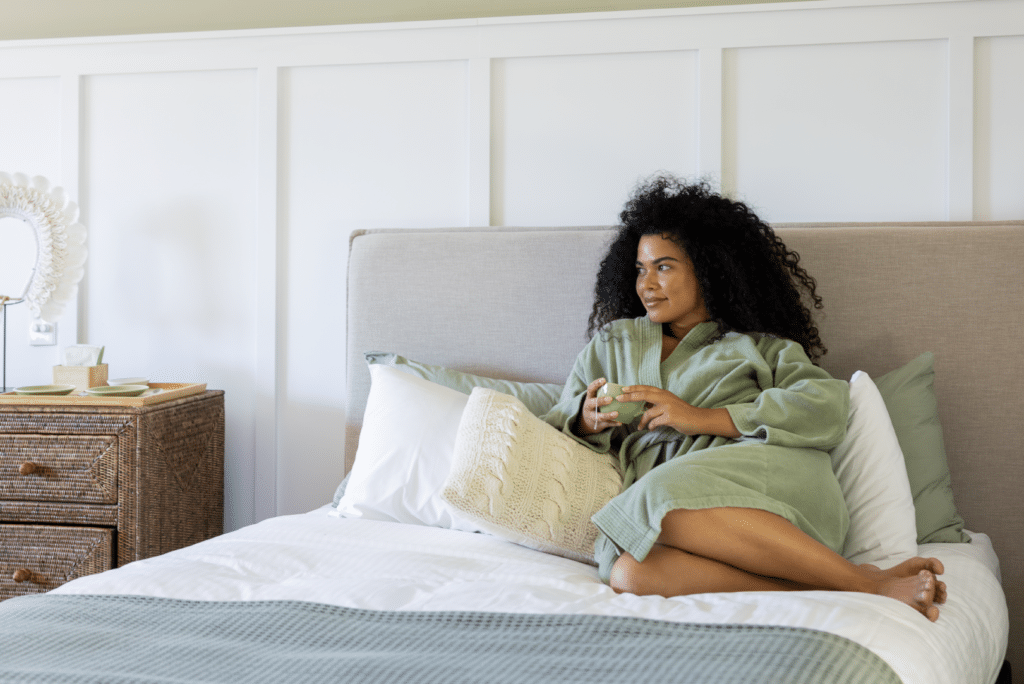When was the last time you had a good night’s sleep? If you find it difficult to fall asleep, stay asleep, or wake up feeling exhausted, then your sleep habits may need some fine-tuning. Restorative slumber is not just a luxury but is a vital component of your wellness journey.
In this week’s blog, we will discuss why sleep hygiene is so important for your physical, emotional, and mental health, plus, how to improve your sleep hygiene.
Why quality sleep is so important
When you sleep, your body undergoes a remarkable process of rejuvenation. This process includes:
Cellular Repair
While you are peacefully asleep, your body’s cells get to work repairing and rebuilding themselves. This process is crucial for maintaining optimal health and occurs late at night: according to research, the 90 minutes before midnight is the most crucial time for this rejuvenation to occur. Ideally, aim to be in bed by 10.30pm to allow your body’s natural processes to occur.
Detoxification
Sleep also plays a significant role in detoxifying your body, as it helps to flush out harmful toxins that can accumulate throughout the day. A good night’s sleep will then leave you feeling refreshed and revitalised, while a bad night’s sleep will leave you feeling groggy.
Mental Clarity
Quality sleep enhances cognitive function, improving memory, creativity, and problem-solving abilities. It’s like a mental reset button; a good night’s sleep will allow you to greet the new day with a clear mind and boosted motivation.
Ways to improve sleep hygiene
At Eden Health Retreat, we understand how important it is to reset your sleep cycle. Whether you are at the retreat or at home, dealing with external stressors such as young children, travel or hormonal changes, there are ways to address and improve your sleep health.
Never underestimate the importance of a good pillow
A good pillow is the secret to sound sleep, as well as neck and back health. If you wake up with a sore neck, throbbing headache or just cannot get comfortable at night, it may be time to invest in a new pillow, such as a memory foam or non-allergen pillow. Before bed, spritz some lavender or sleep spray onto your pillow for a beautifully scented good night’s sleep.

Create a comfortable atmosphere
Being too hot (or too cold) can interfere with a comfortable night’s sleep. Invest in pyjamas made from natural fabrics, such as cotton or bamboo. Your bed coverings should also be suitable for the season – and make sure they’re big enough! There’s nothing like playing tug-of-war with the bed coverings to interrupt your zzz’s.
Banish devices from the bedroom
Recent studies have found that around 75% of children and 70% of adults use an electronic device such as a Kindle, smart phone, or tablet at night. However, using an electronic device may delay the time you fall asleep. The blue light emitted from many devices also disrupts the natural production of melatonin, the hormone that facilitates sleep.
Banish these devices from your bedroom – charge them in another room and put them on Airplane or ‘silent’ mode. You can also set ‘sleep’ time on your device to remind you that it is time to turn off the lights.
Have a herbal nightcap
There are a variety of herbal teas available that are designed to enhance relaxation and improve sleep quality. Consider trying these sleep-inducing options:
Chamomile Tea: Known for its calming properties, chamomile tea can help you unwind before bedtime.
Lavender Tea: The soothing scent of lavender promotes relaxation and can ease you into a restful slumber.

Quiet your mind with restful music or sounds
Listening to music, sounds or guided meditation before you go to sleep has been proven to improve the quality and quantity of your nighttime slumber. Our wellness podcast is a great resource for guided meditations that can be downloaded for a blissful pre-sleep ritual. These meditations are specially curated to help you quiet your mind and prepare for a restorative night’s sleep.
If you prefer to listen to repetitive sounds, then choose from a rainbow of colour sounds, which may help you to nod off.
White Noise is the noise most babies prefer to help them sleep. White noise sounds like radio static and its consistency may help calm a busy mind.
Pink Noise is slightly softer than white noise. Think of a gentle hum or a distant highway. If you prefer to listen to some noise when you sleep, then this may be a good option to try.
Brown Noise is a more erratic pattern, such as the sound of crashing waves, a rainstorm or a waterfall. Some small studies say that brown noise may help to improve memory and academic performance.
Regardless of the type of sounds you like to listen to, they all have something in common: these neural beats can filter out external sounds, help you to destress and can stop your mind from wandering and worrying.
Treat yourself to a relaxing bath
A long, relaxing bath may be just the thing needed to induce a beautifully restful sleep. Enhance your experience by adding magnesium salts, as well as lavender, chamomile, rose, sandalwood, ylang-ylang, or jasmine oils to the water.

The power of journaling
Before turning in, take a moment to jot down your thoughts in a journal. Expressing your feelings and thoughts can be incredibly therapeutic, helping you release any stress or worries that might interfere with your sleep. Read more here about the many benefits of journaling.

Restful, quality sleep is the unsung hero of your wellness journey, one we take seriously at Eden Health Retreat. By following these tips and incorporating them into your nightly routine, you will be well on your way to experiencing the transformative power of restorative slumber.
We look forward to providing you with the perfect environment for rejuvenation and detoxification through the magic of a good night’s sleep.
Sweet dreams!
Sources
Tissue regeneration: Impact of sleep on stem cell regenerative capacity – PubMed (nih.gov)





